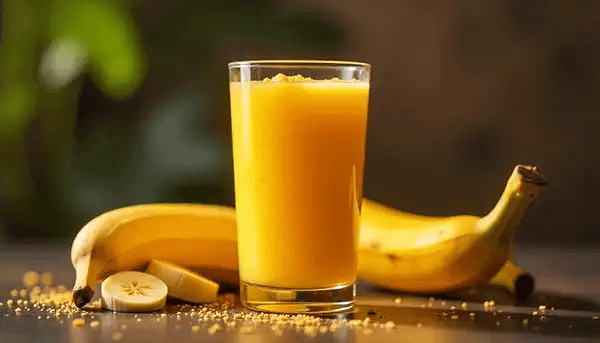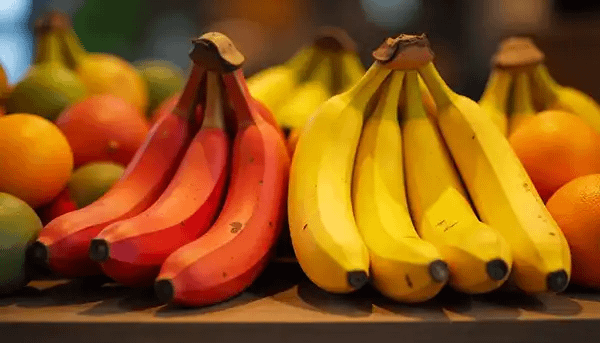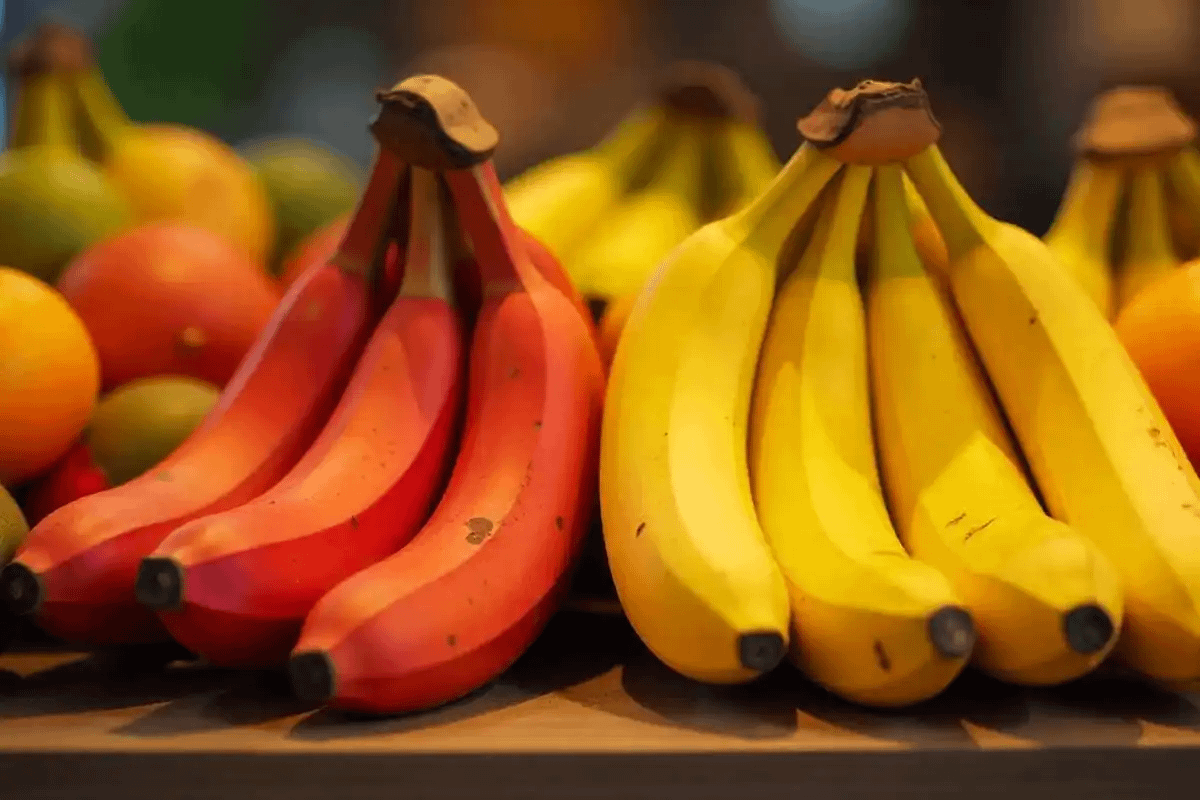Is Banana High in Protein? Know the Best Truth About Raw, Red & Chips in 2025
Bananas are often praised for their health benefits—but how much protein do they really offer? You might be in for a surprise. In this deep dive, we’ll break down the exact protein content in bananas per 100 grams, explore how it changes in different forms like fresh, red varieties, chips, and blended smoothies, and share practical insights you can use to support your fitness, weight management, and wellness journey.
The Protein Paradox—Is Banana High in Protein?
When it comes to protein, bananas often fly under the radar—frequently overlooked in favor of protein-packed options like nuts, beans, and seeds. But while they’re not a heavy hitter in the protein department, bananas still pull their weight. A typical yellow banana offers about 1.1 grams of protein per 100 grams, while the red variety edges slightly higher at around 1.2 grams. While those numbers may seem small, bananas can still be a valuable part of a well-rounded, protein-conscious eating plan—especially when enjoyed alongside more concentrated sources of protein.
“A 2023 study in the Journal of Nutritional Science reported that combining bananas with Greek yogurt increases the overall protein quality of a snack by 25%,” notes Dr. Veronica Sinclair, RD.
Protein in Banana Chips—Crunch vs. Nutrition

- Banana chips nutrition facts vary drastically by preparation.
- While fried banana chips can deliver around 2.5 grams of protein per 100 grams, they also come loaded with approximately 30 grams of extra fat—making them a less-than-ideal choice for those watching their fat intake.
- Baked or dried banana chips contain slightly less protein—about 1.5 grams per 100 grams—but still offer valuable nutrients like fiber and potassium.
Smart choice: Go for baked, unsweetened banana chips to get a better balance of protein without loading up on excess fat.
Banana Smoothies—Liquid Gold or Liquid Carbs?

Smoothies can elevate your protein intake—if done right. A basic banana smoothie nutrition blend (100 g banana + 150 g Greek yogurt) delivers:
- 5 g protein (from banana) + 10 g protein (from yogurt)
- 200 mg potassium
- 4 g fiber
Tip: Add a scoop of plant-based protein powder for a snack containing over 20 g protein—perfect for post-workout recovery.
Beyond Protein—Comprehensive Banana Nutrition Facts
Bananas shine in more than just protein. Here’s a snapshot of banana nutrition per 100g (raw yellow variety):
- Calories: 89 kcal
- Carbs: 22.8 g (fiber: 2.6 g; sugars: 12.2 g)
- Potassium: 358 mg
- Vitamin B6: 0.4 mg
Moreover, banana nutrition facts carbs show that the fiber-to-sugar ratio can slow glucose absorption—an advantage for weight-loss seekers.
Red vs Yellow Banana Nutrition—Does Color Matter?

Color signals ripeness and subtle nutrient shifts:
- Red banana nutrition per 100 g: slightly higher in antioxidants (anthocyanins) and vitamin C.
- Yellow bananas edge out in resistant starch when underripe, benefiting gut health.
Consequently, alternate between them to maximize micronutrient diversity.
Real-World Applications & Personal Anecdotes
Last summer, I swapped my afternoon candy bar for a banana shake (protein in banana shake per 100 g ≈ 1.1 g banana + 8 g whey protein), and noticed a steadier energy level. Similarly, a friend replaced her potato chips with baked banana chips and reduced mid-day cravings by 40%.
These anecdotal successes underscore how modest swaps—guided by banana nutrition value—can yield big wins.
banana nutrition facts
Practical Ways to Boost Your Protein with Bananas
- Smart Pairings: Match bananas with protein-rich foods like Greek yogurt, cottage cheese, or a spoonful of nut butter for a more balanced snack.
- Better Snacking: Choose oven-baked banana chips instead of fried ones to get more protein without the heavy fat content.
- Smoothie Smarts: Upgrade your banana smoothies by blending in protein powder, silken tofu, or a handful of oats.
- Protein-Packed Baking: Give your homemade banana bread a protein lift by mixing in ingredients like egg whites, ricotta, or even a scoop of protein powder.
FAQ
Q1: What’s the protein content of a single banana?
Answer: A medium-sized banana (around 118 grams) typically provides approximately 1.3 grams of protein.
Q2: Can I rely on bananas to meet my daily protein needs?
Answer: Not quite. While bananas are nutritious and versatile, they don’t supply enough protein on their own. They’re best enjoyed alongside more protein-dense foods like legumes, dairy, eggs, or lean meats.
Q3: Are bananas helpful for weight loss?
Answer: Yes, they can be. Their natural fiber and essential nutrients make them a smart addition to a balanced diet. Just be mindful with processed banana-based items—like chips and baked goods—as they can be higher in calories.

